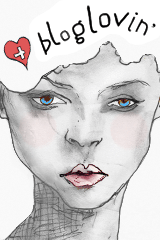*This is a collaborative post*
What is OCD?
Obsessive Compulsive Disorder is a mental health condition/disorder. Sufferers will usually have/exhibit obsessive and compulsive behaviour.
Thinking back...
When I was approached about this post I initially planned to just dive straight in and list off classic signs of OCD, however, after much thought I decided it might be more fitting if I shared some of my early experiences with OCD.
Although I was diagnosed much later on in life, the signs of OCD began to show from a very early age. I think I must have been about five or six years old as that's the earliest memory I have. No-one particularly knows why I started with the problem when I did, although it's a topic I've discussed at length with my therapists. We came to the conclusion that it was probably a mix of genetics, dodgy brain wiring or rather a chemical imbalance, environmental factors and the distress I had experienced when my grandad passed away.
I always had a heightened sense of responsibility and felt the need to help everyone and everything even as a child. I was also terrified of dying. I guess one of the earliest signs of my OCD was probably my checking rituals. Granted at the time I didn't recognise them as this, I was just a child and my parents by all accounts thought I was just a little odd and that it was a phase I'd grow out of. (If only.) Each evening at bedtime I'd have to check the bedroom several times over and in a particular way to make sure it was safe and fire proof. I shared the room with my two younger sisters and was terrified that there'd be a fire in the night. If I couldn't carry out my routine then I'd be convinced that something bad would happen, that someone would die. I would also become greatly distressed if I was interrupted mid ritual and I'd have to start all over again.
As an eight year old, writing Christmas cards began to be a stress inducing time as I'd feel the need to open and shut the cards several times, checking what I'd written. Sometimes I'd even have to tear into sealed envelopes because I felt the need to check just one more time. Yes my habits drove me crazy - even as a child - and yet I couldn't control or stop them.
As a teenager I began getting much worse. Whenever I was worried or having an anxious thought, I'd ruminate and seek help from my mum, my work colleagues, my friends or indeed the internet. I'd crave reassurance and I drove everyone mad in my quest to get it. Asking for reassurance when I had irrational thoughts and fears would somehow help, if only for a short time. Ultimately though, the same anxieties or thoughts would come back and I'd need reassurance all over again. After therapy I learnt that these repetitive physical and mental rituals were actually neutralising behaviours or compulsions, two terms that I'd get used to hearing a lot in therapy.
It's hard to put in to words just how distressing OCD can be but believe me it can really affect your life and relationships. I struggled for years with the condition, with my anxieties and intrusive thoughts before my eventual diagnosis and treatment.
And now...
Fast forward to present day and I guess you could say I'm finally leading a happy and balanced life, but truthfully, I had a hell of a ride getting here. If someone had spotted the OCD for what it was at a much earlier age then would I have struggled for so long? Who knows?! These days I take medication daily - to be fair, quite a high dose - but I'm not ashamed of this. Like a diabetic needs insulin, I need my medication to get by each day and I'm okay with that now. I'm also so grateful to each of my therapists and my ever supportive GP. The team of professionals who have looked after me over the years are nothing short of amazing.
Do I wish I could wave a magic wand and be normal? Ha! The notion of this makes me chuckle. What defines normal anyway? If strangers met me now for the first time, I'm sure they'd have no idea what lies beneath the ever smiling face. Yet rewind just a few years and you'd surely spot the signs a mile off. If you were to ask my mum or my friends what it was like living with me - they'd tell you it was a nightmare.
If you think you or someone you know might be suffering from OCD or any form of mental health condition, it's important that you talk to someone so that you or they can get help.
Classic signs of OCD
Checking rituals - This could literally be checking anything. eg. Checking light switches are switched off even though the individual can see the room is dark. Checking the door is locked several times. Checking the iron is turned off even though it's not even plugged in
Excessive washing - For fear of contamination or getting ill. Look out for over hand washing or a strict hand washing routine
Counting or repeating a particular word
Excessive or extreme religious beliefs/morals
Organising items so that they're in their 'rightful' place, everything has to be just so
Avoidance of places or people for fear that either might trigger anxiety
Persistent 'inappropriate' or intrusive thoughts
Thinking that you might harm yourself or another
Thoughts that if you don't carry out a ritual, something bad will happen
Having a set repetitive phrase or mantra to neutralise anxiety
Impulsive behaviour
Hoarding
Bear in mind that OCD is different for everyone, as are the signs. The above is by no means a comprehensive list.
Getting help
When I was initially referred to the mental health team many years ago, I didn't know I had OCD nor was I expecting this particular diagnosis. So if you are feeling low or relate to anything on the list above, I'd recommend initially making an appointment with your GP to talk things through. Your GP may refer you to the mental health team in your area or to a psychologist or qualified therapist. Once you've established a diagnosis, there are various treatments that can help;
Therapy
Some individuals find they can improve with therapy alone, others may try therapy combined with medication. Cognitive Behavioural Therapy (CBT) is especially popular and effective. Step By Step Recovery offer CBT, counselling, mindfulness and many other recovery services.
Medication
Medication such as SSRIs can make a vast difference. Note that you may have to try various medications before you find one that is right for you. (I've been on different meds over the years before settling on my current. Stick with it! You'll get there.)
Support Groups & Forums
You only need to type a few keywords into Google to find countless support groups, forums and mental health charities. Many sufferers take comfort from talking to like minded individuals. Strength in numbers and all that!
Here's hoping that this post helps even just one of you! :)
*Photos via Pexels








No comments :
Post a Comment
Note: only a member of this blog may post a comment.